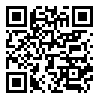BibTeX | RIS | EndNote | Medlars | ProCite | Reference Manager | RefWorks
Send citation to:
URL: http://hakim.tums.ac.ir/article-1-404-en.html
Introduction: Musculoskeletal disorders are major causes of work-related disability for many occupational groups. Rapid Upper Limb Assessment (RULA) is a method developed for use in ergonomic investigations of workplaces where work-related upper limb disorders are reported. RULA is a screening tool that assesses biomechanical and postural loading on the whole body with particular attention to the neck, trunk and upper limbs. This study was performed to assess ergonomic postures of car industry assembling unit workers in Tehran in 2004, using RULA .�
Methods: A sample consisting of 196 workers with 37 postures were selected from assembling units (trim, mechanical and seat installation lines). Ergonomic postures were assessed using RULA.
Results: The highest percent of inappropriate postures were in score seven and action level four, in all three lines. No differences were found between the three lines in scores and actions levels.
Conclusion: The results indicated that inappropriate postures may be major causes of work- related disability. It is concluded that working conditions and postures need to be improved and changes are required immediately.
Hakim Research Journal 2007 10(2):28- 33.
| Rights and permissions | |
 |
This work is licensed under a Creative Commons Attribution-NonCommercial 4.0 International License. |



